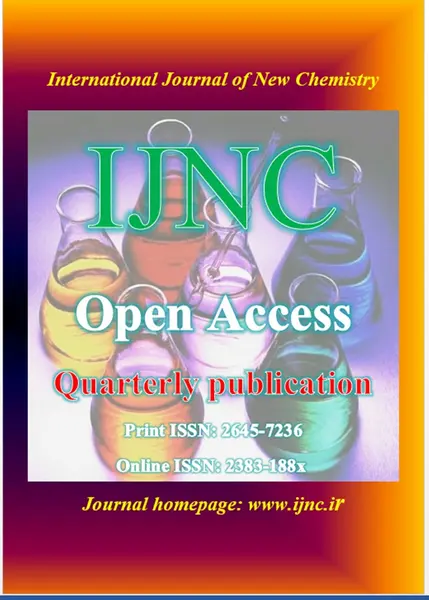-
the effect of magnesium sulfate [mg-sulfate] infusion in the operating room on analgesia after hysterectomy in women with cancer
جزئیات بیشتر مقاله- تاریخ ارائه: 1400/11/13
- تاریخ انتشار در تی پی بین: 1400/11/13
- تعداد بازدید: 137
- تعداد پرسش و پاسخ ها: 0
- شماره تماس ژورنال: 09122976055
the effect of magnesium sulfate [mg-sulfate] infusion in the operating room on analgesia after hysterectomy in women with cancer
introduction: magnesium sulfate[mg-sulfate] acts as a calcium channel blocker and nmda receptor antagonist. when the magnesium ions are separated from the nmda receptors, the pain sensation process begins. after major surgery, with the onset of acute pain, clinical use of magnesium can reduce postoperative pain by blocking the central sensation of pain by blocking nmda receptors. the aim of this study was to evaluate the effect of mg-sulfate infusion in the operating room on analgesia after hysterectomy in women with cancer. material and methods: in this prospective cross-sectional study, 40 candidates for hysterectomy [due to cancer] were evaluated. magnesium group [m] 50 mg / kg iv mg-sulfate in 100 cc normal saline 0.9% and control group [c] 100 cc normal saline 0.9% after intubation and their pain intensity was measured by vas.
finally, a comparison was made between the two groups. results: there is no statistically significant change in the amount of pain at rest between the two groups [p-value=0.925] and it can be said that the two drugs did not have different effects. the mean amount of pain changes in cough condition was examined using repeated measures analysis of variance, which showed that the age variable had no statistically significant effect on changes in pain during cough [p-value = 0.925].conclusion: administration of mg-sulfate at a dose of 50 mg / kg has no effect on pain intensity and drug dose after hysterectomy [due to cancer] and also changes systolic and diastolic blood pressure and arterial blood oxygen saturation during and after surgery. this does not apply to the control group and only causes a significant increase in heart rate compared to the control group at the end of the operation.
حوزه های تحت پوشش ژورنال
مقالات جدیدترین رویدادها
-
استفاده از تحلیل اهمیت-عملکرد در ارائه الگوی مدیریت خلاقیت سازمانی و ارائه راهکار جهت بهبود
-
بررسی تاثیر ارزش وجوه نقد مازاد بر ساختار سرمایه شرکت های پذیرفته شده در بورس اوراق بهادار تهران
-
بررسی تأثیر سطح افشای ریسک بر قرارداد بدهی شرکت های پذیرفته شده در بورس اوراق بهادار تهران
-
بررسی تأثیر رتبه بندی اعتباری مبتنی بر مدل امتیاز بازار نوظهور بر نقد شوندگی سهام با تأکید بر خصوصی سازی شرکت ها
-
تأثیر آمیخته بازاریابی پوشاک ایرانی بر تصویر ذهنی مشتری پوشاک ایرانی (هاکوپیان)
-
اثر تنش برشی استاتیکی اولیه بر مقاومت روانگرایی ماسه اشباع بابلسر در آزمایشات سه محوری تناوبی زهکشی نشده
-
منحنی های شکنندگی اسکله های شمع و عرشه
-
بررسی رابطه بین هوش مالی و ریسک پذیری کارکنان شهرداری اصفهان با رویکرد معادلات ساختاری
-
اثر سطوح مختلف پودر خشک شده میوه کیوی روی برخی از متابولیت های خونی جوجه های گوشتی
-
tow stage design for estimating the reliability of series/parallel systems
مقالات جدیدترین ژورنال ها
-
مدیریت و بررسی افسردگی دانش آموزان دختر مقطع متوسطه دوم در دروان کرونا در شهرستان دزفول
-
مدیریت و بررسی خرد سیاسی در اندیشه ی فردوسی در ادب ایران
-
واکاوی و مدیریت توصیفی قلمدان(جاکلیدی)ضریح در موزه آستان قدس رضوی
-
بررسی تاثیر خلاقیت، دانش و انگیزه کارکنان بر پیشنهادات نوآورانه کارکنان ( مورد مطالعه: هتل های 3 و 4 ستاره استان کرمان)
-
بررسی تاثیر کیفیت سیستم های اطلاعاتی بر تصمیم گیری موفق در شرکتهای تولیدی استان اصفهان (مورد مطالعه: مدیران شرکتهای تولیدی استان اصفهان)
-
بررسی میزان رضایت شغلی بین معلمان زن و مرد مقطع متوسطه اول شهرستان کهنوج در سال تحصیلی 1392-1391
-
بررسی و تحلیل مدیریت انتظامی پلیس در راستای مبارزه با قاچاق کالا
-
مسئولیت زنان در جامعه منتظر امام مهدی علیه السلام
-
analysis of the use of stem cells from the jurisprudence and islamic law
-
architecture and human rights


سوال خود را در مورد این مقاله مطرح نمایید :